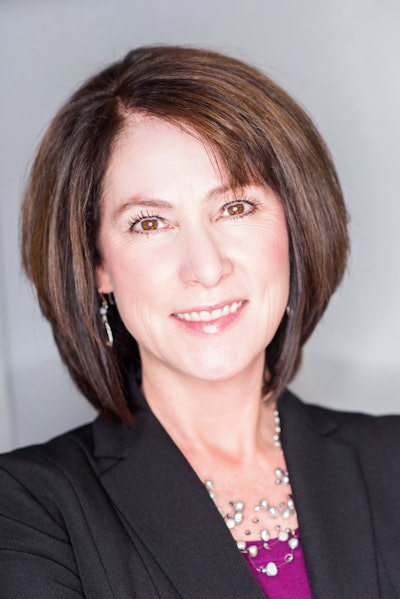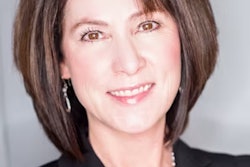
Dental service organizations (DSOs) are a growing force in the industry. According to the ADA, last year, 13% of U.S. dentists were affiliated with a DSO. The number is even higher among younger dentists; nearly a quarter who began practicing within the past 10 years work for a DSO.
Despite DSOs’ increasing prominence in the sector, many practice owners remain skeptical, some due to outdated beliefs about how DSOs operate. Here’s a closer look at common myths about DSOs to help you separate fact from fiction.
Myth: DSOs are part of a corporate dentistry movement that puts profits over people.
In the 1990s, before DSO was a common acronym, corporate dentistry developed a reputation for putting profits over people. Most of the corporate organizations then didn’t have a private equity component like many modern DSOs have. Their goal was to acquire practices as quickly as possible. Many of these entities treated dentists, staff, and patients as interchangeable, which isn’t a sound business strategy, so they failed.
The negative reputation persists, even though the industry has changed dramatically. Today, most DSO leaders know that people skills are critical to success, so they focus on providing a positive experience to dentists, office teams, and patients. Most understand the importance of doctor-patient relationships, and they provide full benefits to office staff.
Myth: All DSOs are the same.
Some people say if you’ve seen one DSO, you’ve seen them all. The truth is, if you’ve seen one DSO, you’ve seen one DSO.
There are more than 375 DSOs in the U.S. and their operating philosophies, objectives, and field structures vary widely. Some assume that DSOs and private equity investors tightly control practices and pressure dentists to generate revenue by spending less time with patients, but keep in mind that not all DSOs and investor groups are created equal.
Investors want a return, but many have learned from the past and understand that the way an organization treats people matters and that investing in doctors, staff, and the patient experience ultimately generates higher returns through better satisfaction rates.
It’s also important to know that not all DSOs are backed by private equity and that private equity groups vary widely too. Some portfolios contain everything from tech startups to dental practices, while others focus on dentistry and healthcare, developing valuable acumen in the space.
Myth: DSOs exist to make money for investors, not practice owners.
Most dentists are focused on delivering patient care, and that’s as it should be. But it’s critical to also think of the practice as a business -- and a potential investment vehicle. Practice owners who understand the value of their business can secure their financial future by planning an exit that delivers the best possible outcome for themselves, their staff, and patients.
Dental practice value used to be determined as a percentage of collections. Today, value is expressed as an offer that calculates a multiplication factor applied to a practice’s EBITDA (earnings before interest, taxes, depreciation, and amortization).
Practice owners who understand this factor and develop a plan can generate more value from their hard work. For example, the Professional Transition Strategies (PTS) team and I created a prospectus for a California dentist and made recommendations on how he could address profit and loss issues in the practice. As a result, the owner significantly increased EBITDA and valuation over a short time horizon. He received a DSO offer that allowed him to work toward an exit, holding shares as an investment that will generate additional returns upon recapitalization.
The earlier a dentist starts planning, the more options they have for an exit, including the opportunity to continue building wealth with the practice they founded after retirement via a DSO.
Myth: When a DSO takes over, they replace the office staff.
Another persistent myth is that when a practice owner sells to a DSO, the DSO will replace the current office staff. The truth is that employees are the heartbeat of a practice. Well-run DSOs recognize that, evaluating all aspects of the operation before making an offer, including staff. A great offer signals that the DSO values the staff.
Also consider that a DSO is a larger organization, so there’s typically more room for staff to move up. For example, a dental group we worked with had a great director of operations who was wary of her organization’s sale to a private equity-backed DSO. She was concerned it might diminish her role, but after we discussed it, she gained a better understanding of her value to the group and professional growth opportunities with the DSO. After the sale, she was promoted to a higher level position, where she mentors staff across a region.
Separating fact and fiction
The bottom line is that not all DSOs are alike, and many have much to offer. But the window won’t remain open indefinitely as the industry consolidates. Whether you’re three, five, or 10 years out from retirement, if you don’t plan for the future, you limit your options. So don’t believe the myths about DSOs -- find out the truth and weigh your opportunities carefully for the best outcome.
Kim McCleskey is a practice transition consultant with Professional Transition Strategies. She has worked in dentistry for 30 years and is a certified professional business coach. She can be reached at [email protected].
The comments and observations expressed herein do not necessarily reflect the opinions of DrBicuspid.com, nor should they be construed as an endorsement or admonishment of any particular idea, vendor, or organization.



















